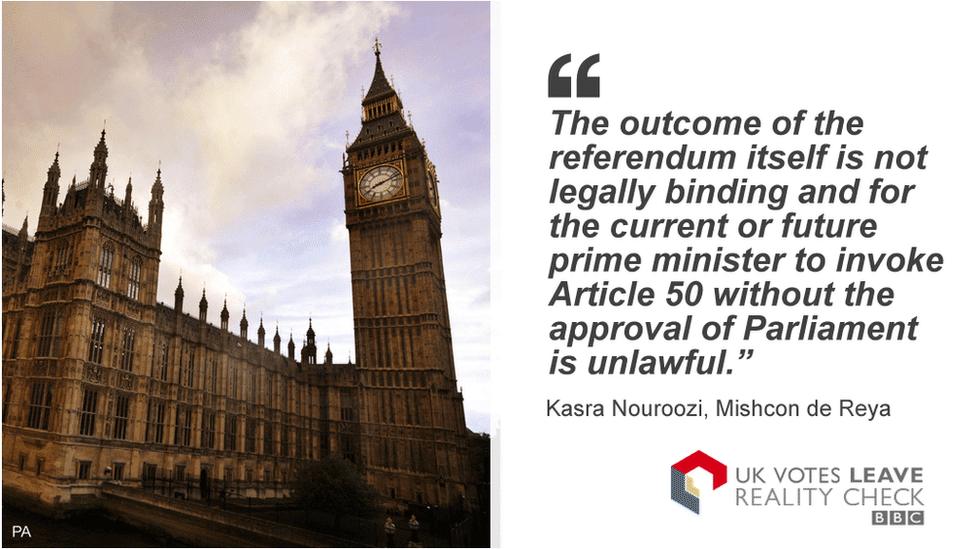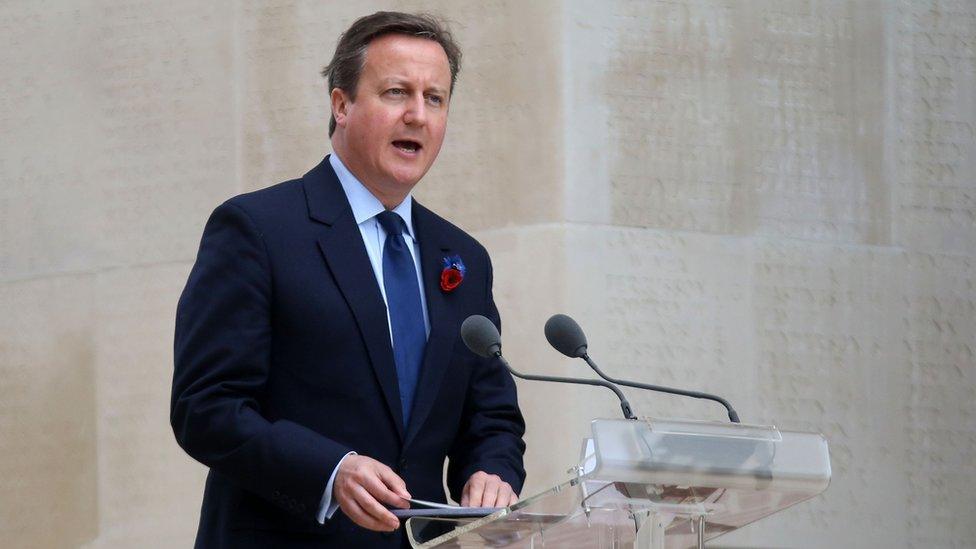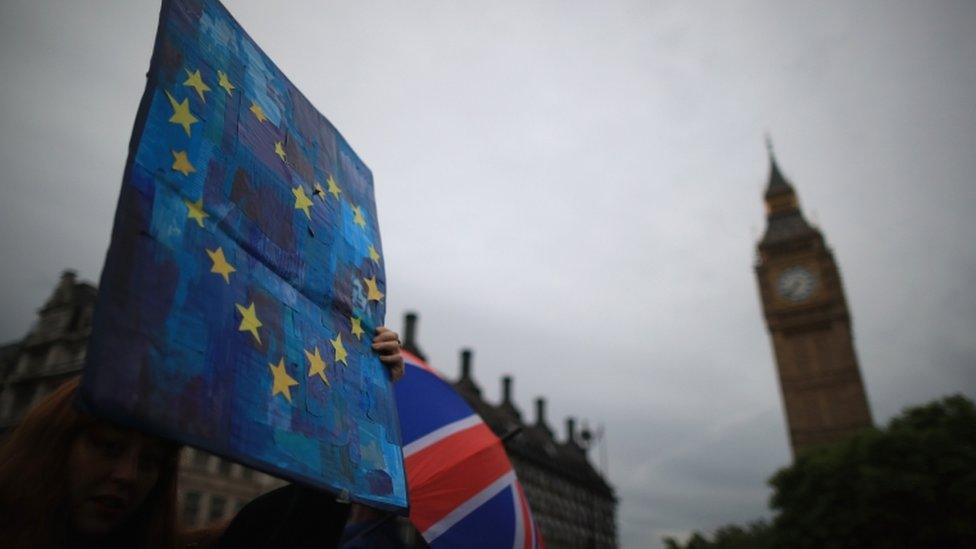Reality Check: Can UK trigger Article 50 without asking Parliament?
- Published

The claim: The next prime minister will not be allowed to invoke Article 50 - the mechanism for leaving the European Union - unless an act of Parliament authorises them to do so.
Reality Check verdict: It may turn out that an act of Parliament is needed before Article 50 may be triggered, but it is difficult to see how Parliament could in practice ignore the result of the referendum.
A group of unnamed business people and academics represented by the law firm Mishcon de Reya has launched a legal challenge, external to require a future prime minister to get the approval of Parliament before triggering Article 50.
It followed an article along the same lines, external from the Constitutional Law Association.
Article 50 of the Lisbon Treaty is the mechanism by which countries may leave the European Union.
Once the article has been triggered, it sets a two-year time limit for negotiations, which may only be extended if all the member states agree to it.
The lawyers at Mishcon argue that triggering Article 50 would automatically, although not immediately, override the European Communities Act 1972, and that only Parliament can change its own legislation.
But some legal experts argue that the 1972 act would remain part of UK law until it is repealed by Parliament at the end of the process, rather than the beginning.
Cabinet Office minister Oliver Letwin told the Commons foreign affairs committee on Tuesday that the government had been advised that the prime minister could trigger Article 50 without an Act of Parliament, but that Parliament would have to be involved with the changes to the European Communities Act.
It is important to get it right, because Article 50 says a member state may decide to leave only "in accordance with its own constitutional requirements".
During the campaign, Prime Minister David Cameron said he would go to Brussels immediately after the referendum to trigger Article 50, although he has since decided to resign.
If he had gone straight away, it would have had to have been with the use of prerogative power, a collection of executive powers held by the Crown since medieval times and now placed in the hands of ministers.
They are often used in foreign affairs that Parliament has largely left to the government. So, for example, the prime minister would not ask Parliament who to nominate to be head of the European Commission or whether to ask for a lower EU budget.
Dr Thomas Horsley, an expert on EU law from Liverpool Law School, says the challenge to the prime minister's ability to trigger Article 50 without the prior approval of Parliament is "based on a particularly wide reading of a set of cases on limits to the exercise of prerogative powers".
But he adds: "It would be politically necessary with respect to Article 50 that when prerogative powers are used, Parliament is consulted - at the very least."
Kasra Nouroozi, from Mishcon de Reya, says: "Everyone in Britain needs the government to apply the correct constitutional process and allow Parliament to fulfil its democratic duty, which is to take into account the results of the referendum along with other factors and make the ultimate decision."
It is the suggestion that there are "other factors" to take into account that is tricky, because the majority of MPs were in favour of staying in the EU.
A Cabinet Office spokesman said: "As the prime minister said in the Commons, we have now got to look at all the detailed arrangements, and Parliament will clearly have a role in making sure that we find the best way forward."
So it sounds like there will be some involvement from Parliament.
But, as BBC legal affairs correspondent Clive Coleman says, "it seems constitutionally inconceivable that Parliament would fly in the face of the Leave vote secured through a national referendum and refuse to pass an act that gave the prime minister authority to begin the 'divorce' process".



- Published4 July 2016

- Published30 June 2016

- Published22 February 2016
